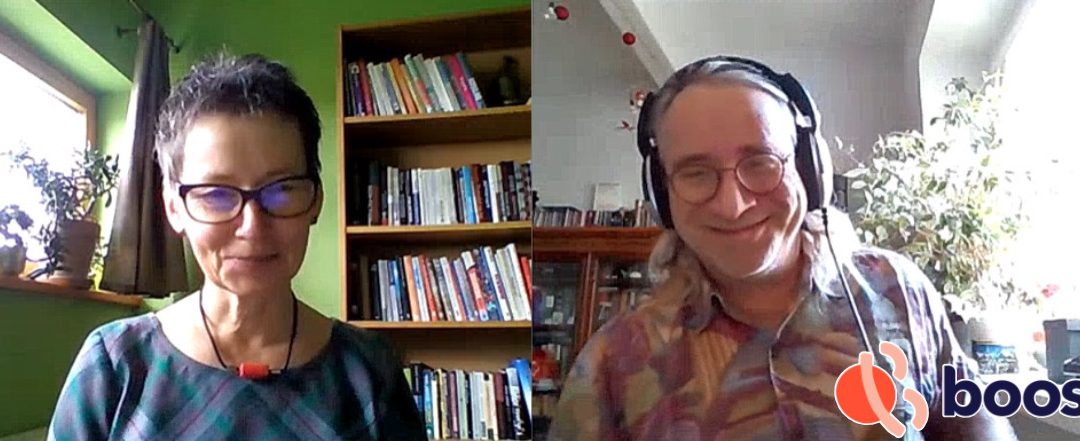Following the developments of the BOOST project, a series of interviews was launched to photograph the situation in early 2022. To open the round were Prof. Agata Wiza and Dr. Robert Florkowski from the the University School of Physical Education in Poznań, which is in charge of implementing the BOOST project in schools in Poland. The exchange was an opportunity to deep dive into the current state of implementation of the BOOST project, stressing the difficulties posed by COVID-19 and the major achievements from the adoption of SEL programmes in the school ecosystem, with an eye at the next steps and hopes for the upcoming months.
The interviewees gave a clear and complete overview of the current state of the BOOST project in their country. Prof. Wiza explained that the project is implemented in three different experimental schools, following three different modalities and resulting in three different paces. As a matter of fact, each school has different needs, priorities, and engagement levels, all depending on how the teachers work. Prof. Wiza stressed that these characteristics lead to different styles of communication and cooperation with schools. In one school, for example, communication is easier because the style of management of headteachers tends to motivate other staffers. This approach from principals reflects on more pro-activeness within the school ecosystem. On the same line, Dr. Florkowski emphasized the role of the school management in the implementation of the project, defining principals as “climate setters”.
Because of the pandemic, they have observed the disruption of the regular school cooperation. Teachers had to learn how to use new types of equipment in the best way and plan their work in the short-term run under many different and unpredictable situations. Even the general context brought some hurdles to the project: since the teachers were always overloaded and often underpaid, it was also challenging to get them on board on the BOOST project since it meant extra work and extra-mental effort. In some schools, they have observed that employee turnover was also a problem because of the influx of new faces and people, who had to adjust and adapt to the new context. In Dr. Florkowski’s own words, there was constant change, multiple new skills had to be acquired, and it is not easy to get people on board in a new project in these conditions.
Among the challenges, online education was undoubtedly one of the major hindrances. Prof. Florkowski explained that the whole concept of the BOOST approach and the style of communication they are pursuing is about mutual sensitivity, careful listening, and putting yourself in someone else’s shoes. These challenges triple in the online context due to the lack of face-to-face contact. Besides this, Prof. Wiza thinks that the most difficult challenge they managed with each school, both control and experimental, is the difficulty of maintaining cooperation in such an unusual situation. Direct contact with schools was complicated, so they had to re-organize their approach to the project, which included a periodic collection of information and many online meetings. To overcome the obstacles, the interviewees emphasised the creation of “BOOST Teams” in each experimental school, thanks to which it was possible to collect news and maintain regular contacts with school staff through online meetings and workshops.
Regarding the adoption of SEL programmes in schools, they agree that the best achievement they have noticed in the school ecosystem is that the schools started adding their own tools to the project, showing that they have metabolized and adapted part of the approach to their environment and organization. They explain this is hugely relevant because it shows that the schools are bringing in their own creativity based on their experience. Most of all, they set rebuilding relationships among children as a priority. This is the most important thing.
But what is the main lesson we can learn from the experience of BOOST? Prof. Wiza underlined that well-being and the ability to understand each other are key components, not only for children but for all people. In her words, when we support school staff and teachers, they can in turn support the families and the children. We influence each other. Empathy is paramount, and the well-being of teachers, children, and their families is the main priority. Dr. Florkowski emphasized that the mutual impact in every interaction, both positive and negative, is undervalued: BOOST reminds him of its importance. The key is self-awareness, to look inside ourselves. Those things already happened with BOOST.
As explained by Prof. Wiza in the closing remarks, the next steps and hopes from now to June 2023 are all about putting together much data for scientific articles and organizing workshops for teachers about social and emotional competencies for children, which remain the ultimate beneficiaries of this process. In any case, as she pointed out, first you have to take care of the children’s well-being and then expect great things from them.

